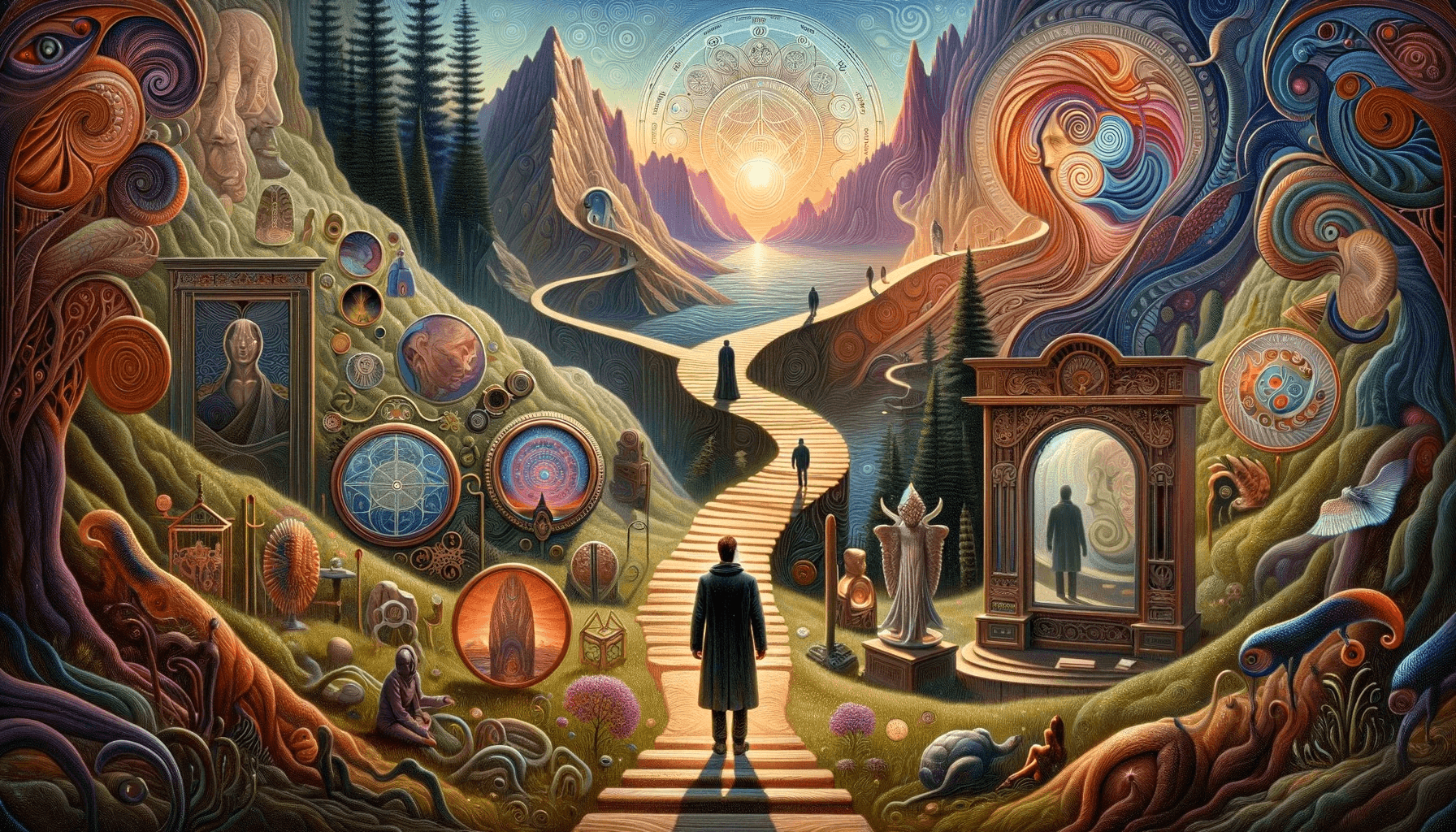
Table of Contents
Introduction to Carl Jung’s Individuation Process

Self-discovery is a journey that takes us deep into the intricate layers of our psyche. It is an exploration of our true identity, our purpose, and our potential for growth and transformation. One of the most influential thinkers in this field is Carl Jung, a Swiss psychiatrist and psychoanalyst who developed the concept of individuation. This article will delve into Jung’s Individuation Process and its significance in our personal and professional lives.
Understanding the concept of self-discovery

Self-discovery is gaining insight into one’s character, values, and beliefs. It involves introspection, self-reflection, and a willingness to confront our fears and vulnerabilities. Through self-discovery, we can uncover our passions, strengths, and weaknesses, leading to a greater understanding of ourselves and the world around us. It is a lifelong journey that requires patience, curiosity, and self-compassion.
Related: Self-Realization: Understanding the Inner Self
The importance of personal growth and transformation

Personal growth and transformation are essential for living a fulfilling and meaningful life. When we embrace the process of self-discovery, we open ourselves up to new possibilities and experiences. We become more self-aware, which allows us to make conscious choices and align our actions with our values. Personal growth enhances our relationships as we develop a deeper understanding and empathy for others. It empowers us to overcome challenges, embrace change, and reach our full potential.
Exploring the Stages of Carl Jung’s Individuation Process

Jung’s Individuation Process is a multi-faceted journey that integrates our conscious and unconscious minds. It consists of several stages that guide us toward self-realization and wholeness. The first stage is shadow integration, which involves acknowledging and accepting our dark side—the aspects of ourselves that we tend to repress or deny. We can uncover hidden strengths and overcome self-limiting beliefs by embracing our shadows.
Shadow integration: Embracing your dark side

The shadow represents the repressed or unconscious parts of our personality. It encompasses our fears, desires, and instincts that we have disowned or rejected. Shadow integration involves facing these aspects of ourselves with compassion and curiosity. By acknowledging and accepting our shadow, we can integrate it into our conscious awareness, creating a greater sense of wholeness and authenticity. Embracing our dark side allows us to tap into our hidden potential and become more balanced individuals.
Related: Unlocking Limitless Confidence Through Shadow Training
Anima and Animus: Balancing masculine and feminine energies

Anima and animus are archetypal energies within each individual, representing our psyche’s feminine and masculine aspects, regardless of gender. Anima is the feminine energy within men, while hate is the masculine energy within women. Balancing these energies is crucial for achieving inner harmony and cultivating healthy relationships. By integrating our anima or animus, we can develop a deeper understanding and appreciation of the opposite gender and tap into our own creativity and intuition.
Related: Divine Femininity: Exploring the Role of Women
The Self: Unifying the conscious and unconscious mind

The Self is the central archetype in Jung’s Individuation Process. It represents the unification of our conscious and unconscious minds, symbolizing wholeness and integration. The journey toward the Self involves aligning our conscious thoughts, feelings, and behaviours with our deep inner wisdom. It requires self-reflection, introspection, and a willingness to confront our fears and embrace our vulnerabilities. Connecting with our Self, we can experience a profound sense of purpose, meaning, and authenticity.
Related: Living with Purpose: Exploring the Philosophy of Memento Mori
Symbols and Archetypes in the Jung’s Individuation Process

Symbols and archetypes play a crucial role in the Individuation Process. They are universal patterns or images that emerge from our collective unconscious and hold deep symbolic meaning. By exploring and understanding these symbols, we can gain insight into our unconscious motivations, desires, and fears. Symbols can guide us toward self-discovery and provide a personal growth and transformation roadmap. They can also serve as a bridge between our conscious and unconscious minds, facilitating the integration of our psyche.
Practical tips for embarking on your journey of self-discovery

Embarking on a journey of self-discovery can be both exciting and daunting. Here are some practical tips to help you get started:
- Practice self-reflection: Set aside time each day for introspection and self-reflection. Journaling, meditation, or mindfulness exercises can help you gain clarity and insight into your thoughts and emotions.
- Seek support: Consider working with a therapist, coach, or mentor who can guide and support your journey. They can help you navigate through challenges and provide valuable insights.
- Embrace uncertainty: Self-discovery is a process of exploring the unknown. Embrace uncertainty and be open to new experiences and perspectives. This will allow you to discover hidden aspects of yourself and expand your personal growth.
The impact of the Jung’s Individuation Process on personal and professional life

Carl Jung’s Individuation Process has a profound impact on both our personal and professional lives. As we become more self-aware and integrated, we can better navigate challenges, make conscious choices, and build authentic relationships. In our professional lives, self-discovery enhances our leadership skills, creativity, and problem-solving abilities. It allows us to align our work with our values and find greater meaning and fulfillment in our careers.
Read: Awaken Your Great Self
Conclusion: Embracing the journey of self-discovery for a fulfilling life

Carl Jung’s Individuation Process offers a transformative path toward self-discovery and personal growth. By embracing the stages of shadow integration, anima and animus balance, and connecting with our Self, we can embark on a journey of self-realization and wholeness. Through symbols and archetypes, we gain insight into our unconscious mind and tap into our hidden potential. The impact of the Individuation Process extends beyond our personal lives, enhancing our relationships and professional endeavours. Embrace the road to self-discovery, and embark on a journey toward a more fulfilling and authentic life.
CTA: Start your journey of self-discovery today and unlock your true potential. Embrace the Individuation Process and experience personal growth and transformation. Begin by setting aside time for self-reflection and seeking support from a therapist or coach. Embrace uncertainty and be open to new experiences. Remember, self-discovery is an ongoing journey, but the rewards are immeasurable.




